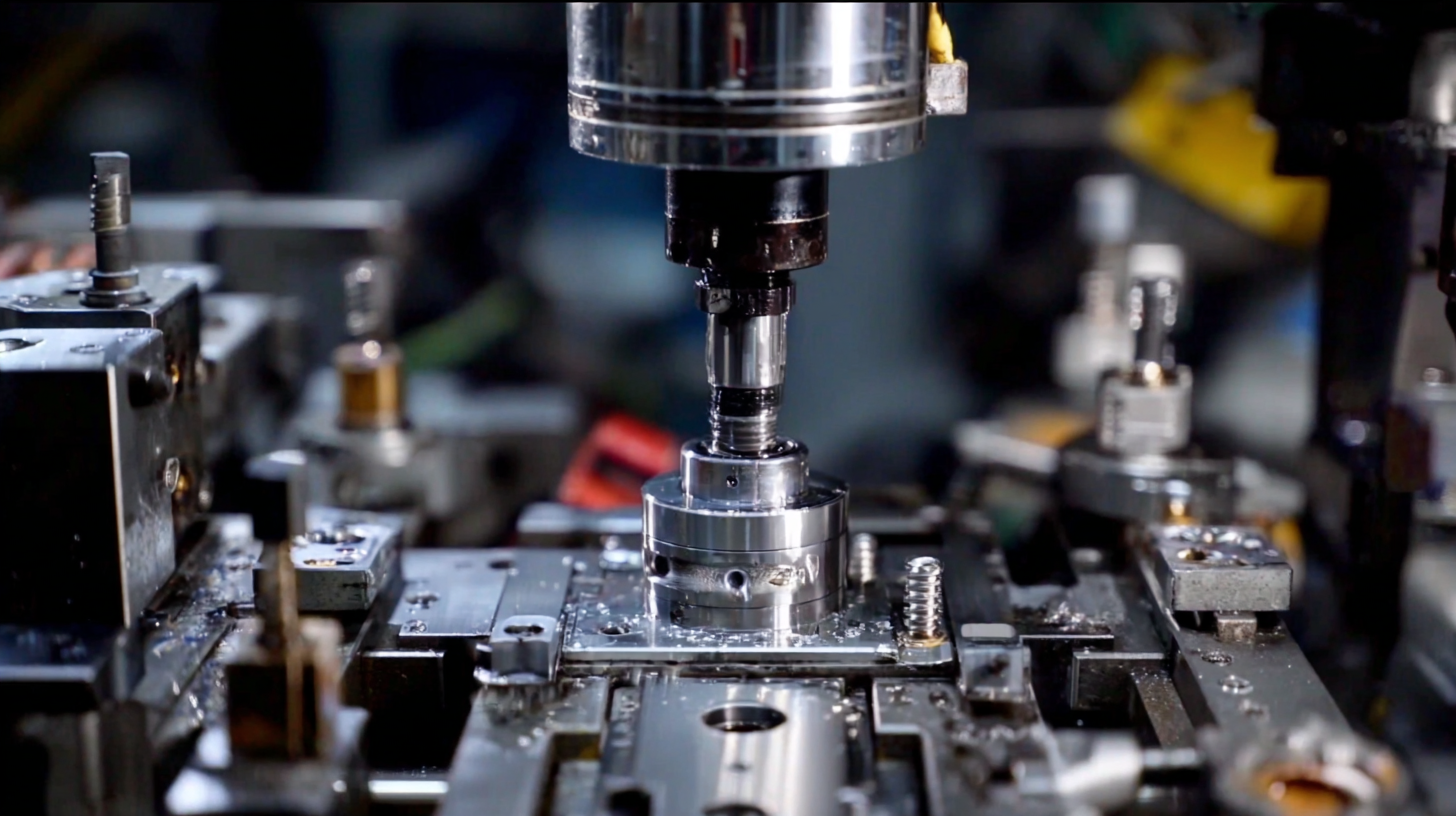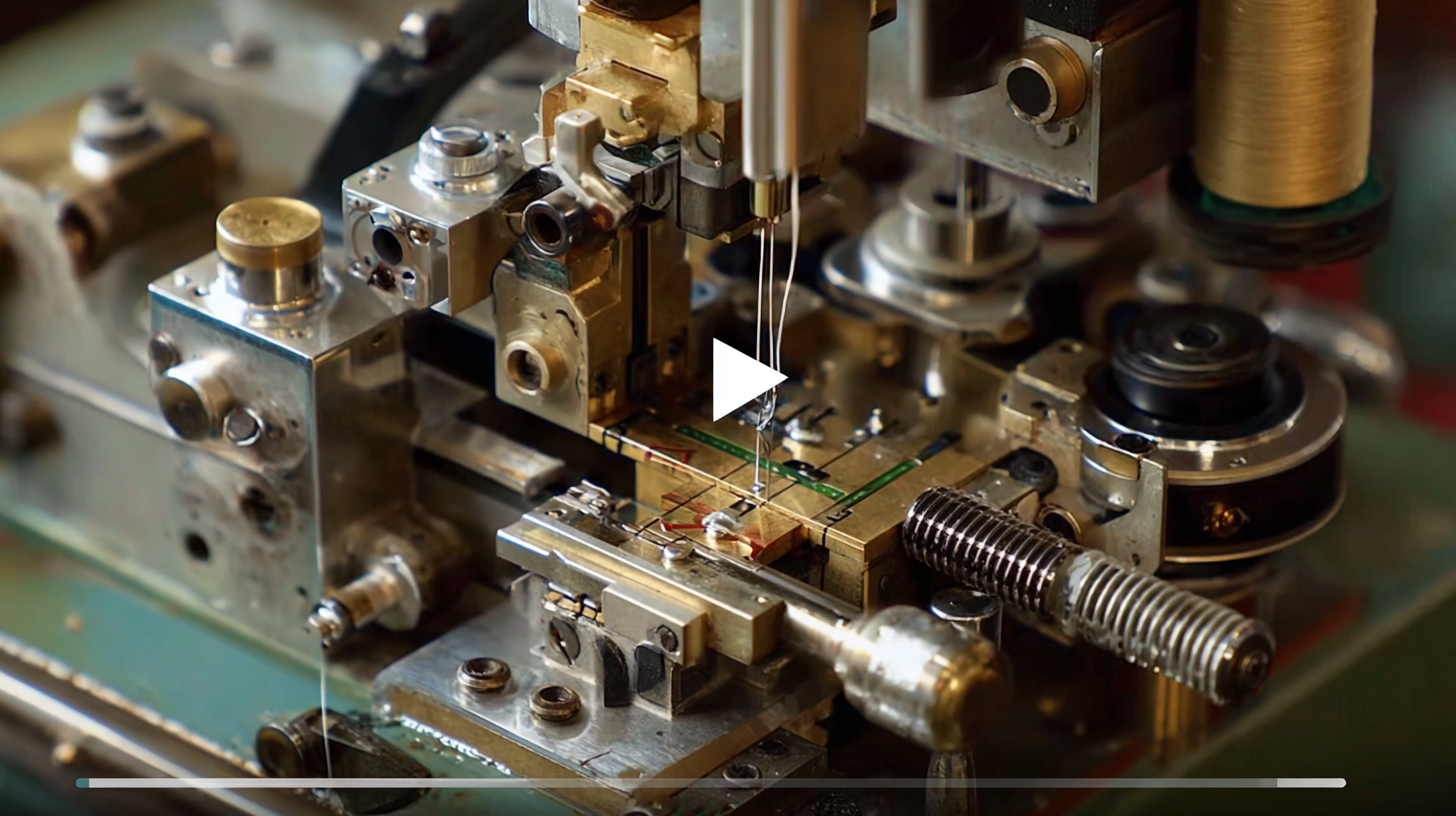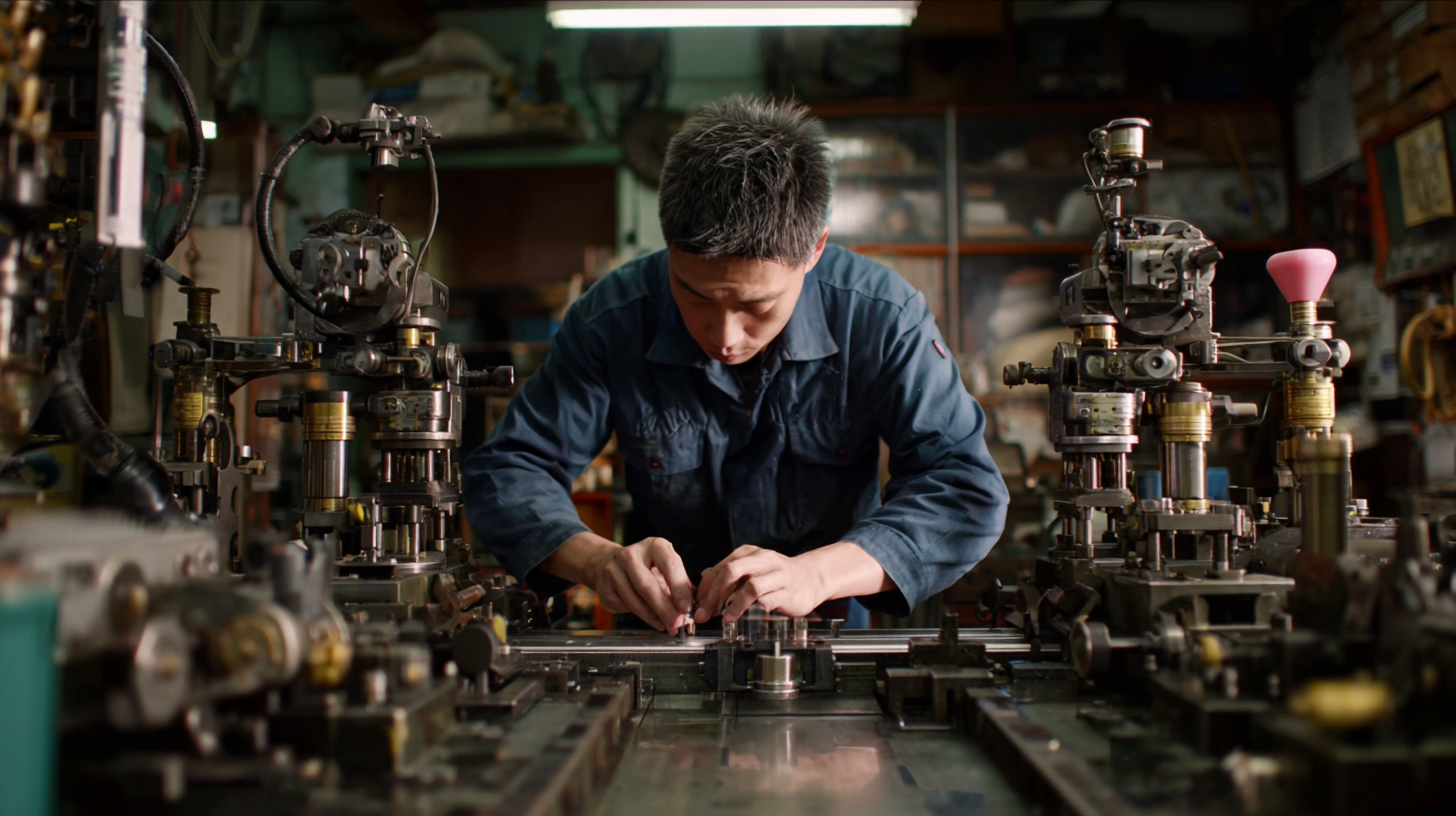Craftsmanship in Action Elevating Global Standards with the Best Machine Repairing Machine
In an era where precision and reliability are paramount, the role of the "Machine Repairing Machine" stands out as a critical element in maintaining efficiency across various industries. According to recent industry reports, the global machine repair market is projected to grow at a CAGR of 4.5% over the next five years, emphasizing the increasing demand for advanced repair solutions. Businesses are continuously seeking ways to enhance their operational capabilities, and a well-equipped machine repairing machine plays a vital role in elevating global standards of craftsmanship.

As manufacturers strive to minimize downtime and optimize productivity, the integration of state-of-the-art machinery for repair work has become indispensable. This blog aims to provide a comprehensive checklist for selecting the best machine repairing machine, ensuring that companies can meet their repair needs effectively while adhering to the highest quality benchmarks.
The Importance of Craftsmanship in Machinery Repair
In the realm of machinery repair, craftsmanship stands as the cornerstone of quality and reliability. The ability to repair intricate machines requires not only technical skills but also an artistic touch that elevates the output of any service. Skilled craftsmen understand the nuances of each component, recognizing that even minor imperfections can lead to significant operational failures. Their expertise ensures that machines operate at peak efficiency, thereby enhancing productivity in industrial environments.
Moreover, the importance of craftsmanship extends beyond mere repairs. It encompasses a commitment to excellence that influences global standards in the industry. By fostering a culture of meticulous attention to detail and a passion for precision, these artisans contribute to the overall advancement of machinery repair. As businesses increasingly seek to optimize their operations, the demand for high-quality repair services will continue to rise, underscoring the critical role that craftsmanship plays in sustaining the functional integrity of machinery worldwide.

Innovative Alternatives to Traditional Repair Techniques
In today's fast-paced industrial landscape, traditional repair techniques often struggle to keep up with the demands of efficiency and precision. “Innovative Alternatives to Traditional Repair Techniques” showcases a shift towards advanced machinery that not only streamlines the repair process but also enhances the quality of outcomes. By utilizing cutting-edge technologies such as automated precision tools and smart diagnostics, industries can ensure that their machinery is repaired faster and more accurately than ever before.
One of the most exciting developments in this domain is the advent of specialized machine repairing machines. These machines are designed to tackle common repair challenges that human technicians may face, such as tight tolerances and complex components. Incorporating features like real-time monitoring and adaptive response capabilities, these advanced machines are revolutionizing the repair industry. As a result, businesses can minimize downtime and maximize productivity, all while adhering to elevated global standards of craftsmanship. Such innovations not only improve the repair process but also foster a culture of continuous improvement and excellence in engineering practices.
Craftsmanship in Action: Elevating Global Standards in Machine Repair
Exploring Best Practices in Machine Repairing Machines
In the fast-paced world of manufacturing and technology, machine repairing machines play a pivotal role in maintaining efficiency and productivity. Best practices in this field evolve continuously, driven by innovation and the pursuit of excellence. Key strategies focus on preventative maintenance, operator training, and the integration of advanced diagnostic tools to ensure optimal machine functionality. By prioritizing these practices, organizations can significantly reduce downtime and repair costs while extending the lifespan of their machinery.
Moreover, investing in high-quality machine repairing machines not only enhances the repair process but also sets a benchmark for global standards. These state-of-the-art machines are designed to interface seamlessly with diverse equipment, enabling precise and accurate repairs. Utilizing cutting-edge technology, such as AI-driven diagnostics and remote monitoring systems, empowers technicians with real-time insights, fostering a proactive approach to machine upkeep. Embracing these best practices not only elevates the standards of machine repair but also contributes to a more sustainable and resilient manufacturing environment.
Craftsmanship in Action Elevating Global Standards with the Best Machine Repairing Machine - Exploring Best Practices in Machine Repairing Machines
| Repairing Machine Type | Application Area | Key Features | Maintenance Frequency (Months) | Average Repair Cost ($) |
|---|---|---|---|---|
| CNC Machine Repair Tool | Manufacturing | Precision cutting, automated calibration | 6 | 1500 |
| Hydraulic Press Repair Unit | Metalworking | High pressure stabilization, leak detection | 12 | 2000 |
| Lathe Maintenance Machine | Woodworking | Versatile tooling, smooth operation | 8 | 1200 |
| Compressor Overhaul Machine | Construction | Noise reduction, efficiency upgrade | 10 | 1800 |
| TIG Welder Repair System | Metal Fabrication | High precision welding, digital controls | 6 | 1600 |
How Global Standards Shape Machine Repair Industry
The machine repair industry is experiencing a significant transformation as global standards evolve to demand higher quality and efficiency. These standards compel manufacturers and repair service providers to adopt advanced technologies and best practices that prioritize not only performance but also sustainability. By adhering to international benchmarks, businesses can ensure that their machinery repairs not only meet client expectations but also contribute to a safer and more sustainable operational environment.
With the introduction of sophisticated machinery, such as the latest machine repairing machines, repair specialists are expected to elevate their expertise. This shift towards precision engineering and advanced diagnostic tools enables technicians to restore equipment to optimal conditions more effectively. Furthermore, global standards encourage ongoing education and training for repair professionals, ensuring they remain at the forefront of technological advancements and industry best practices. By embracing these global standards, the machine repair industry can enhance reliability and customer satisfaction, ultimately leading to a more robust and competitive marketplace.
The Future of Machine Repair: Trends and Technologies
The landscape of machine repair is rapidly transforming with advancements in technology, driving significant changes across industries. As the global lathe machine market is projected to grow from $25.01 billion in 2018 to $57.54 billion by 2032, it becomes essential to stay ahead of the trends influencing this evolution.
Machine repair now incorporates smart technologies and automation, ensuring efficiency and precision while meeting higher standards.
To navigate these changes effectively, consider the following tips:
- First, invest in training for your team on emerging technologies. Understanding tools like predictive maintenance and IoT-connected devices can drastically reduce downtime.
- Secondly, embrace modular machines that allow for easy upgrades. This flexibility helps businesses adapt to new technologies without the need for costly full replacements, keeping your operations competitive.
Lastly, stay informed about industry trends by engaging with professional networks and attending trade shows. Keeping abreast of innovations not only enhances your service offerings but also positions your business as a leader in the evolving machine repair landscape. By aligning with these trends, you can elevate your operational standards and better serve your clients in an increasingly sophisticated market.

